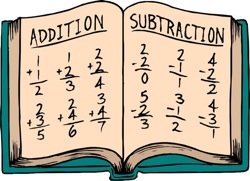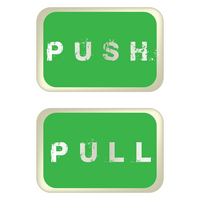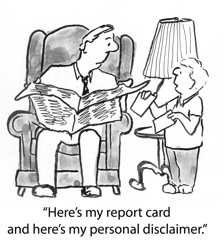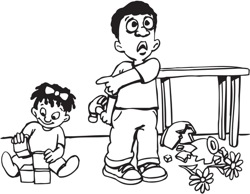“I’m Waiting For_______”
 It seems to me that there is a lot of waiting in life – waiting for something to happen.
It seems to me that there is a lot of waiting in life – waiting for something to happen.
What are you waiting for?
It may not be the case with you, but generally what I find is that when I say, “I’m waiting for _____,” it’s often an excuse for me not to take action.
Let’s pretend you want to paint a room and you have ordered a special paintbrush you want to use but it hasn’t arrived yet. “I’m waiting for the paintbrush” is a legitimate thing to say. But there are countless other things you can do to make this project go smoothly in the meantime – Tape the ceiling, assembling the drop cloths, paint cans and rollers, etc.
We wait to do those things and when the paintbrush does arrive, the project is a mountain to climb rather than just some walls to paint.
The paintbrush is a metaphor for what you’re waiting for.
What are you not doing while you’re waiting for something to happen?
Have you noticed that “not doing” takes on a life of its own and we justify that life by saying “I’m waiting.”
Here’s a secret others may not share with you: The thing you’re waiting for may never happen. That means that you have suspended living until what you are waiting for arrives. That means you are merely existing.
Being patient and waiting are not the same thing. There is a knowing behind patience – knowing that what you want will happen if you’re willing to give it the time that’s necessary.
Waiting, on the other hand, is just a giant pause with no guarantee. It’s a maybe at best.
What you’re waiting for may truly be worth it, but what you do while you are waiting either contributes to you or it doesn’t. If you’re “on hold” during this time, so is your life. I can tell you from experience that it’s not a pleasant feeling. A life spent in waiting is a life waiting to die.
What can you do to live?
I don’t know the answer for you, but I suspect it’s the same one I found: Do anything other than wait.
If you’re waiting for the paintbrush, your life may be dead, or, in the meantime, live a little and paint the town red.
All the best,
John
VIRTUAL MASSAGEBe Sociable, Share!

 The words, “Need to know” popped into my head when I opened my word processor this morning, so I haven’t a clue where this goes. Buckle your seatbelt and let’s take an off-road adventure together and see where we go.
The words, “Need to know” popped into my head when I opened my word processor this morning, so I haven’t a clue where this goes. Buckle your seatbelt and let’s take an off-road adventure together and see where we go. It can easily be argued that you are the sum total of your patterns. Your behavioral routines determine what you do and you are an amalgam of those repeated deeds, indeed.
It can easily be argued that you are the sum total of your patterns. Your behavioral routines determine what you do and you are an amalgam of those repeated deeds, indeed. One thing you will know for sure if you hear someone offer the platitude, “Forgive and forget” is that they are swimming upstream.
One thing you will know for sure if you hear someone offer the platitude, “Forgive and forget” is that they are swimming upstream. “Good, Better, Best” discussions will always be arguments without winners because all those terms describe opinions.
“Good, Better, Best” discussions will always be arguments without winners because all those terms describe opinions. The Grasshopper introduced me to a new Latin phrase: “Quid Pro NO.”
The Grasshopper introduced me to a new Latin phrase: “Quid Pro NO.” Had a visit from The Grasshopper over the weekend as I was sitting outside. He said, “Nature doesn’t care about reasons.”
Had a visit from The Grasshopper over the weekend as I was sitting outside. He said, “Nature doesn’t care about reasons.” “There are holes in peoples’ lives that keep them from becoming whole.” So said The Grasshopper this May morning.
“There are holes in peoples’ lives that keep them from becoming whole.” So said The Grasshopper this May morning. Awakening is like a
Awakening is like a  It struck me the other day that the word “Onus” can be hyphenated to read: “on-us.”
It struck me the other day that the word “Onus” can be hyphenated to read: “on-us.”